non-player character
description: fictional character in a role-playing or video game that cannot be played or controlled by a real-world person
20 results
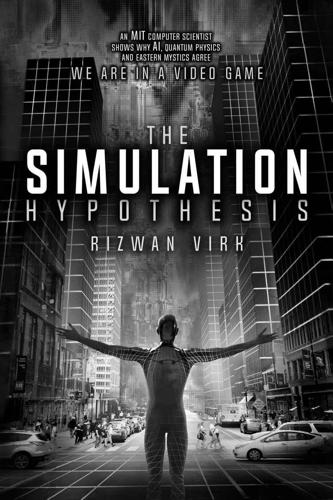
The Simulation Hypothesis
by
Rizwan Virk
Published 31 Mar 2019
See NDEs (near-death experiences) Netscape, 287 Neumann, John von, 100, 260 Neurable, 76 Neurolink, 76 A New Kind of Science (Wolfram, 2002), 266 New York Times, 232 Newton, Isaac, 13, 36, 124–26, 161, 166, 220–21 Niels Bohr Institute, 132 Nintendo Entertainment System (NES), 38–39 nirvana, 203 NLP (Natural Language Processing), 89–92 No Man’s Sky, 46–47, 51, 236 Noack, Marcus, 246 nonhuman earth-based lifeforms, 275 non-player characters (NPCs), 30–31, 39, 82, 280–81 non-player characters (NPCs), graphical, 41–42 non-simulated beings, 114 NPCs (non-player characters), 30–31, 39, 53, 82 NPCs and Turing Test, 115 O OASIS, 56–57, 71 OBEs (out-of-body experiences), 219, 241–42 “object” definition, 70 observation, particle collapse as, 131 Oculus VR, 59–60 OpenAI, 87, 94 optimization, 159–160 optimization techniques, computer graphics, 34, 157 Owhadi, Houman, 254–55 P Pac-Man, 1, 34, 82, 208, 273 parallel lives and future selves, 150–52 parallel universes and simulation hypothesis, 159–160 parallel worlds and Fringe, 152–53 parallel worlds and the multiverse, 148–150 parallel worlds, need for computation, 157–59 Paramahansa Yogananda, 183, 200 particle “local” nature, 127 particles and pixels on screen, 162–64 particle-wave duality, 127–134, 254–55 Pauli, Wolfgang, 121, 125–26 Pauli Exclusion Principle, 126 PCs (player characters), 82 PCs vs.
…
Chapter 12 The Great Simulation and Its Implications This chapter brings together the various strands that we’ve explored in this book—those of computer science, quantum physics, and Eastern (as well as Western) mystics to look at some of the bigger questions that relate to the Great Simulation, such as who is running the simulation and what does it mean for our collective species. We also want to revisit one of the big debates among the adherents of this new theory: whether we are simulated or actual consciousness (or in the video game terms, whether we are player characters, non-player characters, or AI-based non-player characters). Finally, we’ll end with a discussion of how the simulation hypothesis may provide the first plausible bridge between two of the most important searches for truth in humanity’s history: those of the scientific community and the mystics who are responsible for the world’s religions.
…
This also brings up the idea that whatever physical processes we think builds the world around us, they may have computation-like characteristics. Fractal geometry, based on simple recursive fractal algorithms, has been remarkably effective at simulating aspects of the natural world, including treelike structures, leaves, and the landscape of planets. Player Characters, Non-Player Characters, and AI. In video games, there are PCs (player characters) and NPCs (non-player characters), who are artificial characters that are controlled by the game and by algorithms. As AI gets more sophisticated, we are getting closer to computer programs that are able to pass the Turing Test, a test to determine when humans cannot distinguish whether they are interacting with a real person or a computer program.
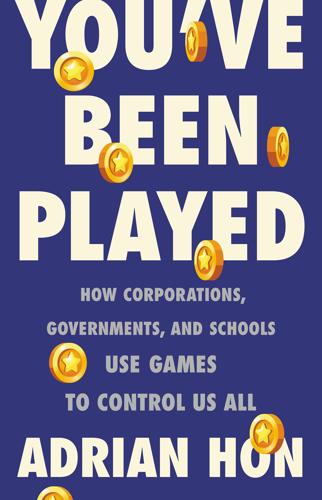
You've Been Played: How Corporations, Governments, and Schools Use Games to Control Us All
by
Adrian Hon
Published 14 Sep 2022
I share the definition used by most designers and critics, where gamification means the use of game design principles for nongame purposes. Those principles include some concepts that long predate video games and board games, like points, badges, challenges, levels, and leaderboards, along with concepts that are much newer, like “compulsion loops” and AI-driven non-player characters (NPCs). As for those nongame purposes, pick any human need or endeavour you can imagine—education, health, science, politics, companionship, terror, and of course, material gain. This means there’s no bright line for what counts as gamification—it’s more of a family resemblance, encompassing everything from SimCity and Peloton to frequent-flyer programmes and Chinese social credit systems.
…
Chapter Eight explores how financial markets, terrorism, social media, consumerism, and even dating have become gamified, and how the metaphor of the world as game is shaping our behaviour. Metaphors can enlighten but they can also mislead, and viewing the world as a constant competition where other people become disposable non-player characters bodes ill for us all. In Chapter Nine, I peer into the future as augmented reality enables the gamification of every moment of our lives and virtual reality becomes so captivating it draws a generation away from employment. But it’s the past that I use to understand where gamification is taking us, and how it might ultimately change and end—specifically, the all-encompassing system of indulgences that ruled Europe in the Middle Ages and governed every aspect of people’s thoughts and actions.
…
And because APIs necessarily flatten all tasks into a stream of data, you can motivate these humans to work harder and faster via gamification, which helpfully reduces both your management burden and your labour costs. Put simply: if you live above the API, you’re playing the game, and if you live below it, you’re being played. You’re an NPC—a non-player character. Few people live fully above the API. Even though I run my own company, part of my job exists below the API because I’ve answered literally thousands of Zombies, Run! customer emails via our API-enabled online support system, Zendesk. Zendesk doesn’t have any features labelled explicitly as gamification, although a panoply of leaderboards make it impossible to miss which agents have answered the most tickets and garnered the highest “customer satisfaction” ratings.89 When I set up the system, I stopped it from asking customers to rate their experiences with our support team.
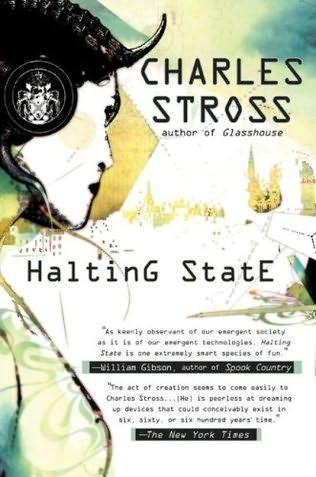
Halting State
by
Charles Stross
Published 9 Jul 2011
You’re just keying in a brief message when your specs vibrate for attention. You glance up: The SPOOKS overlay is active, and it’s telling you TWO-PERSON TAG TEAM DETECTED. The dictates of the game require you to take it seriously, even though you’re too tired for this shit, and you want to go to bed. Besides, SPOOKS tries to map non-player characters onto real local objects—and you can really live without two strangers trying to follow you. You speed up slightly, not glancing round—that’s your glasses’ job—and mumble quietly, calling up a course into the densely occupied area around the corner of Princes Street and Lothian Road. You change direction, darting into a side street, and behind you the blips on your head-up display turn to follow you.
…
“Let’s start with, who is Nigel MacDonald a cover for?” When Michaels doesn’t respond, he raises an eyebrow. “Well?” Michaels shakes his head pensively. “There used to be an old joke in role-playing circles—it isn’t funny, these days—that there were only a thousand real people in the UK—everybody else was a non-player character. Now it’s pretty much the reverse.” That’s worth blinking at. You can’t quite picture the urbane establishment-issue Barry Michaels as a spotty teenage D&Der, but it would explain his current position, wouldn’t it? SPOOKS has got to have taken years to develop—it’s clearly a long-term project—which implies funding and pilot projects and all sorts of R&D behind it.
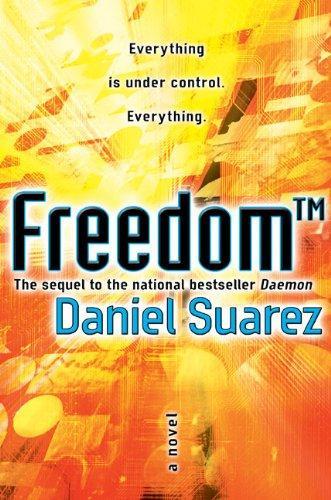
Freedom
by
Daniel Suarez
Published 17 Dec 2009
What gives Sobol the right to decide for them?" Price shrugged. "Well, the public doesn't really decide anything now--they just select from the options they're given." He stuffed the last of the churro into his mouth and chewed furiously. "Factions have a slang term for the general public. They call them NPCs--as in 'non-player-characters'--scripted bots with limited responses." "That's just obnoxious." "Is it? These people have only limited decision-making ability." "And we're not Sobol's puppets?" "Okay, I think I know what's going on here." He balled up the churro wrapper and tossed it into the orifice of a trash can shaped like a robot.
…
She could also hear music and laughter in the distance, with other player-character avatars moving around, call-outs floating over their heads. It was beautiful. She spent several moments just staring at it. Then she heard someone speak in her headset. "I beg your pardon, my lady." Philips turned her avatar to face what looked to be a non-player-character--or NPC--a servant of some type in house livery. She knew it was a bot, a simple AI program that could respond in limited ways, or be scripted to perform actions. She could tell because it bore no call-out above its head. The avatar bowed before her and swept his plumed hat off his head. "My lady, Master Rakh will be very glad when he hears that you've arrived safely.

Jennifer Morgue
by
Stross, Charles
Published 12 Jan 2006
(2) Want to ask questions about the town and its surroundings? (3) Want to talk about anything else" I sigh. "Gimme (1)." "Okay. (1) G'bye, big boy. (2) Anything else" "(1). Get me my beer then piss off." One of these days I'll get around to wiring a real conversational 'bot into the non-player characters, but right now they're still a bit — There's a huge sound from the back room, sort of a creaking graunching noise. I blink and look round, startled. After a moment I realize it's the sound of a quarter of a million experience points landing on a — "Pinky, what exactly did you up-level Grondor the Red to" LVL 15 C0RTE5AN.
…
"We have been notified that contrary to statutory regulations issued by the Council of Guilds of Stormville you are running an unauthorized boarding house, to wit, you are providing accommodation for mendicant journeymen. Normally we'd let you off with .a warning and a fifty-gold-piece fine, but in this particular case — " I'm readying the amulet of teleportation, but she seems to be able to anticipate events, which is just plain wrong for a non-player character following a script. "Accommodate this!" she hisses, and cuts the connection dead. There's a hammering rumbling sound overhead. I glance up, then take to my heels as I wrap my arms about my head; she's animated the gargoyles, and they're taking wing, but they're still made of stone — and stone isn't known for its lighter-than-air qualities.
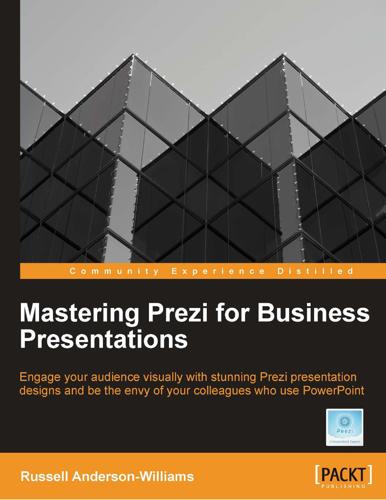
Mastering Prezi for Business Presentations
by
Russell Anderson-Williams
Published 24 Jul 2012
Please check www.PacktPub.com for information on our titles Flash Multiplayer Virtual Worlds ISBN: 978-1-84969-036-2 Paperback: 412 pages Build immersive, full-featured interactive worlds for games, online communities, and more 1. Build virtual worlds in Flash and enhance them with avatars, non player characters, quests, and by adding social network community 2. Design, present, and integrate the quests to the virtual worlds 3. Create a whiteboard that every connected user can draw on 4. A practical guide filled with real-world examples of building virtual worlds Flash Facebook Cookbook ISBN: 978-1-84969-072-0 Paperback: 388 pages Over 60 recipes for integrating Flash applications with the Graph API and Facebook 1.
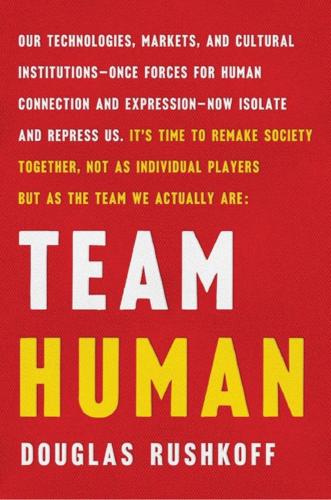
Team Human
by
Douglas Rushkoff
Published 22 Jan 2019
Engagement through digital media is just a new way of being alone. Except we’re not really alone out there—the space is inhabited by the algorithms and bots that seek to draw us into purchases, entertainment, and behaviors that benefit the companies that have programmed them. They outnumber us, like “non-player characters” in a video game. We are as likely, or more likely, to be engaging with a bot on the internet than we are to be engaging with another person. And the experience is likely to feel more rewarding as well. Unlike the humans, the AIs online are increasingly connected to one another. Companies regularly and instantaneously sell data to one another.
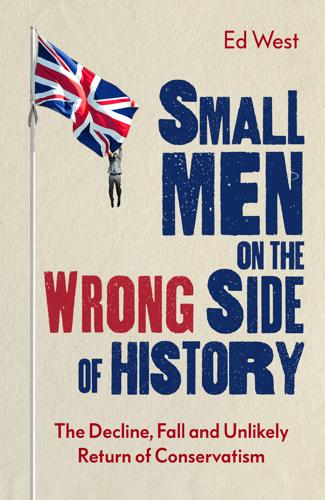
Small Men on the Wrong Side of History: The Decline, Fall and Unlikely Return of Conservatism
by
Ed West
Published 19 Mar 2020
In contrast, many bright young men who perhaps aren’t hugely socially skilled increasingly find themselves drawn to the Right, isolated by those they call the normies, ‘normal people’ who just go along with the prevailing cultural winds. One of the most popular memes of the 2010s was that of the ‘Non-Player Character’ (NPC). The terms comes from Dungeons and Dragons, the online role-play game in which NPCs appear in the background and are designed to look like they have human agency behind them. A real-life NPC is ‘a vessel for received opinion’, trotting out all the conventional beliefs the prevailing liberal culture has told them to believe, ‘echoes of the dumb slogans one incessantly hears on MSNBC or VICE or the latest Netflix special’.13 One version of this meme portrays a character called Wojack who is grey and robot-like and uses phrases like ‘Did you catch the big game?’
…
S. 227 Liberal Democrats 8, 266, 269, 273, 355 liberal elites 5–6 Liberal Party 50, 75 formation 77 Liberal Party (Victorian) 65 Libertarian Party 207 libertarianism (Right-liberals) 203–8, 240 Library Lion (book, 2006) 257 Liddle, Rod 190–1 Lilla, Mark 125–6, 173, 184 Limbaugh, Rush 312, 313 Lincoln (2012) 228 Lincoln, Abraham 228 linear progress 227–8 Linehan, Graham 186 Lineker, Gary 195 Lipset, Seymour Martin 145, 146 Lisbon earthquake (1855) 90 literacy rates 175 Livingstone, Ken 20 ‘Lizardman’s Constant’ 302 Loaded (magazine) 169 Locke, John 51–3, 140, 288 Lollard heresy 326 Lomax, Alan 146 London 5, 18–20, 43–4, 49–53, 55, 119, 156, 163–4, 211, 245–6, 367 see also City of London London Olympics 2012 176, 230–1 Lord of the Rings, The trilogy 361 Louis XVI 55, 59 Lourdes 211 lower-middle classes 5 Loyalists 59 Lucas, Caroline 356 Luddites 91 Luther, Martin 48 Lyon 60 Lysenko, Trofim 144–5 MacBride, Séan 201 MacMillan, James 189 Mad Men (TV series) 185 Madonna 358 Magna Carta, Clause 39 205 Magorian, Michelle 106 Mahler, Gustav 337 Mailer, Norman 121 Major, John 86 Major government 85–6 Malaysia 351 Malcolm X 178 Malmesbury Abbey 125–6 Malthus, Thomas 239 Manchester 156, 173 Manchester Guardian (newspaper) 65, 83 Mandela, Nelson 11, 16, 24, 82, 89, 174, 201, 256 Mandelson, Peter 153, 159–60 mankind, nature of 31–3, 35, 36–8 Manning, Cardinal 213 Mao Zedong 99, 139, 226–7, 256, 263 Marat, Jean-Paul 59–60 Marcuse, Herbert 135, 325 Marie Antoinette 59, 178, 210 Marie Stopes International 241 marriage 127–8, 246, 282 mixed 301–2 same-sex 222–3, 228–9, 272–3, 292, 328 shotgun 128 marriage gap 247–55 Marx, Karl 41, 75, 93–4, 104, 105, 109, 135, 174, 224, 371 Marxism 82, 128, 145, 198, 202, 224, 227, 319 economic 127 see also Cultural Marxism Mary I 48 masculinity 114, 136, 140 masochists 105–6 Mass 60, 135, 291 Matrix, The (1999) 345 Matthew, Gospel of 229 Maurras, Charles 95 May, Theresa 6 McCain 28 McCarthy, Joseph 128 McCarthyism 128, 146, 148 McCourt, Frank, Angela’s Ashes 172 McIlroy, Will 104 Mead, Margaret 134 means of production 135 memes 344, 353 Menninger, Karl 121 Methodists 64, 255, 280 middle classes 9, 129, 191, 342, 357 see also lower-middle classes; upper-middle classes Middle East 236, 361 middle-aged conservatism 1, 2, 273–5 Migration Watch 250 Miliband, Ed 15, 237, 354 military 8–9 Mill, John Stuart 10, 289, 304, 325 Millar, Fiona 234–5 Millennials 2, 19, 84, 221 Miller, Arthur 128 Miller, Stephen 341 Milton, John 64 missionaries 92 Momentum 263 Momentum Kids 263 monarchy 66–7 Monbiot, George 278–9 Mondrian, Piet 98 Montesquieu 206, 288 Monty Python 191 Moon Man (2006) 257 Moore, Charles 282–3 Moore, Demi 311 Moore, Michael 268, 313 ‘moral panic’ 34 Moran, Layla 223 More, Thomas 92 Morocco 351 Morpurgo, Michael, The Pied Piper of Hamelin 258 Morrell, Frances 18–19 Möser, Justus 67, 85 mothers, unmarried 85 Mothers’ Union 197 Mount, Ferdinand 99 Mozilla 289 Mugabe, Robert 16 Muggeridge, Malcolm 46 Muller, Jerry Z. 50, 65, 66, 68, 74 multiculturalism 17, 177, 190, 238–9, 270, 292, 315, 317, 329, 341, 346, 355 multinationals 17–18 Mumsnet 198 Münster 92 Murray, Charles 152, 239, 246, 289 Murray, Douglas 307 Muslims 136, 173, 229, 264, 299, 317–18, 321, 351, 366–8 see also Islam Mussolini, Benito 94–5, 113, 126 mutation 72 My Naughty Little Sister (Edwards, 1952) 258 Myanmar 351 Nader, Ralph 313 Naked Gun, The series 22 nanny state 17 Napoleon Bonaparte 81, 190 narrative selection 299–300 nation-states 67 National Academy of Sciences 300 National Association of Scholars 320 National Blood Service 196–7 National Childbirth Trust (NCT) 296 National Health Service (NHS) 176, 195, 197, 204, 208, 230–1 National Review (magazine) 339 national socialism 96, 97 see also Nazis nationalism 94, 95, 126, 262, 345 nations 71 Native American culture 130–1 natural selection 147 Nature Genetics (journal) 349 Nature (journal) 350 nature-nurture debate 138–40 Nazis 20, 24, 87–9, 96–100, 105, 126, 139, 155, 157, 161, 172, 179, 196, 197–8, 205, 210–11, 237, 303, 312, 325, 329, 346 see also national socialism NCT see National Childbirth Trust neoconservatives 240 nepotism 70–1 Netflix 137 Netherlands 49, 52 neuroticism 108 New Atheism 215–16, 218, 224 New Atheism Internet Wars 214–15 New Deal 96 New England 49, 55, 57, 320 New Labour 153, 156–60, 163, 200, 265 New Left 146 New Model Army 49 ‘New Moral World’ 93 New Statesman, The (TV show) 89, 272 New Tories 267 New York 153–4 New York Times (newspaper) 99, 177, 178, 229, 236, 298–9, 313 News of the World (newspaper) 283 NHS see National Health Service Nicaraguan civil war 14–15 Niemietz, Kristian 197 Niemöllers, Martin 358 Nietzsche, Friedrich 229 Night to Remember, A (1958) 162 Nike 4–5 Niskanen Centre (think-tank) 295 Nixon, Richard 24, 148, 153, 154, 336 noble savage 130–1 non rapid eye movement (NREM) sleep 180 Non-Player Characters (NPCs) 344 non-whites 127 Nonconformism 65, 92 Norman, Jesse 54 norms Christian 79 cultural/moral 70 shifting 2–3 traditional gender 246 Norodom Sihanouk 17 Norris, Chuck 24 North America 362 North Korea 97, 226 Northern Ireland 5, 158, 214, 362 Norway 351 Norwich, John Julius 259 Notting Hill 42, 81, 266, 269–70 novelty seeking 137 Nowrasteh, Alex 177 NPR 313 nuclear families 246 Nugent, Ted 24 Nuts (magazine) 169, 212, 238–9 NWA 122 Oakeshott, Michael 72, 159, 358, 365 Oath of Supremacy 291 Obama, Barack 13, 24, 27, 30, 227, 249, 256, 265, 310–11, 319, 329, 335, 337 Obama, Michelle 11 Oberlin College 323 Obi-Wan Kenobi 365 O’Brien, James 186 Observer (newspaper) 245 OkCupid 302 Old Sarum 17 Oman 351 openness 108–9, 137 optimism 37–8 ‘Orchestra Pit Theory’ 313 Original Sin, doctrine of 28, 33, 129, 229 O’Rourke, P.J. 22 orthodoxy 65–6, 128, 240 Orwell, George 80, 179, 341 Animal Farm 143–4 Nineteen Eighty-Four 144 Osborne, George 250, 270 Oscars 4 Oswald, Lee Harvey 178 Owen, Robert 92–3, 97 Owenites 93 Oxfam 233 Oxford University 36, 37, 52, 80, 145, 151, 166, 326 paedophiles 18 paganism 6, 12, 173, 254, 255, 276, 291 Page Eight (play) 189 Paine, Thomas 56–9, 61, 63, 71–2, 366 Paisley, Revd Ian 296 Pakistan 292 Palestine 300, 362 Pandora’s box 29 Pantisocracy 91 Papua New Guinea 18 Paris 36, 38, 55–6, 90, 131–2, 190 Parliament 317 see also House of Commons; House of Lords Parliamentarians 36, 50, 51 Parliamentary majorities 1 partisanship 354 Partridge, Alan 24, 192 Party Politics (journal) 248 paternalism 79 Paterson, Isabel 206 Paterson, Owen 356 Patreon 290 Paul, Ron 207 Paul, St 222, 254 PBS 313 Peasants’ Revolt (1381) 46, 76 Peel, Robert 77 Peelites 77 Peep Show (TV show) 87, 88, 285 Pelagius 31–2, 349 Penn, Sean 24 Penn, William 57 Pennsylvania 57 Pentagon 339 People for the American Way 186 personality disorders 187 personality traits 139 Big Five 108–13, 137, 363 genetic 348–50 pessimism 30–3, 35, 36 Peterson, Jordan 152, 348 Pew Research 221, 238, 297, 310 Philadelphia 57 Philip, Prince, Duke of Edinburgh 18 Phillips, Kevin 338 Phillips, Melanie 46, 273 physical segregation 295–6 Picasso, Pablo 98, 179 Pierre d’Avrigny 254 pill, the 127, 155, 362 Pinker, Steven 140 Pinochet, Augusto 25, 159 Pinter, Harold 80 Pinter Prize 189 Pipes, Richard 303 Pirates Next Door, The (Duddle, 2012) 257 Platform 51 199 Plato 32, 92 pluralism 52, 290, 305–6 polarisation 295–306, 311 Politburo 21 Political Correctness Gone Mad 140, 141–52, 245, 289 political identity 8 political typing 137 polytechnics 133 Pope, Lauren 169 pornography 167–70, 212 Porter, Dame Shirley 79 Postlethwaite, Pete 24 postmodernism 136 Potter, Harry 42–3, 183 Poussin, Nicholas 227 poverty 72–3, 173–5, 199, 282 absolute 73 Powell, Enoch 131 Prague Spring 80 prejudice 58–9, 303, 350–1 Presbyterians 145 Presley, Elvis 24 Priam, King 29 Priestley, Joseph 56 Princeton 145 Profumo, John 156, 166 proletariat 127, 132 Proletariat (newspaper) 244 Prospect (magazine) 46 Protestantism 12, 13, 45, 48–9, 64, 155, 291, 294, 312, 329 Latin American 255 Low Church 50, 222 radical 48, 49, 50, 57, 64, 65 US 145 Prussia 303 Pryce, Revd Richard 56 Pryor, Margaret 299 Psychology Today (magazine) 106–7 Public Enemy 24 public morality 332 Public Religion Research Institute 238 Puritans 36, 49, 50, 53, 57, 64, 65, 70, 145, 164, 219, 292, 331 QED (TV show) 141–2 Quakers 299 quangos (quasi-government bodies) 202, 203 Question Time (TV show) 195 Quetelet, Adolphe 270 racial difference 142–3 racial inequality 178 racism 28, 94, 117, 146–7, 183, 193, 241, 280, 291, 301, 341 scientific 16–17 radical change, as negative 72 ‘radical privilege’ 10 radio 312, 314 Radio 3 371 Radio 4 4, 195, 196, 244, 245, 267, 283 Ramadan 229 Rand, Ayn 208 rapid eye movement (REM) sleep 180 Rationalism 215, 223–4 Reagan, Ronald 82, 148, 153, 155, 163, 225, 252, 313, 365 reality, as social construction 133–40 reason 69–70, 223–33 Red Dawn (1984) 185 Red Skull 237 Redmayne, Eddie 10 ‘redpilled’ 345 Rees-Mogg, Jacob 24 Reeves, Richard 111 reform 72–3 Reformation 13, 48, 51, 92, 291, 292–3, 294 ‘second’ 12 Reichstag 98 Reid, Benjamin 121 religion decline of 129 function 68–9 see also specific religions religious fundamentalism 65–6 religious liberty 52 Remain faction 173, 238, 243, 270, 275, 302, 322, 354, 355, 356–8 Republicans 7, 10, 27, 51, 82, 86, 109, 111–12, 114, 122–3, 127, 154, 224, 238, 247–8, 267–8, 270, 274, 279, 294, 297, 300–5, 307, 309, 313, 315, 319–21, 324, 326, 363, 366 Reservoir Dogs (1992) 123 Restoration 37 ‘Revolt of the Elites’ 132 Rhode Island 57 Rickman, Alan 235 rights 205 natural 70 trans-rights 328–9 US civil rights movement 84, 89, 105 see also Bill of Rights Rights of Man 58 Ritter, Carl 342 Roache, Rebecca 237 Roberts, Alderman 280 Robespierre, Maximilien 60, 230 ‘Robin Hood tax’ 200 Robinson, John 166 RoboCop (1987) 279, 361 Rokeach, Milton 107, 333 Roman Church 212 Roman Empire 276, 373 Romania 15, 46 Romans 173, 252–3 romanticism 76–9 Rome 11, 12, 187, 255, 276, 291 Henry’s split with 48 Romero, Oscar 24 Romney, Mitt 248–9, 319, 358 Ronald, Amy 353 Roosevelt, Franklin D. 96 rotten boroughs 17 Rousseau, Jean-Jacques 37–41, 60, 110, 130, 178 Rowling, J.
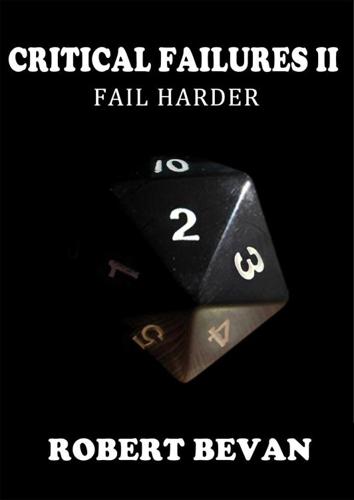
Critical Failures II (Caverns and Creatures Book 2)
by
Bevan, Robert
Published 12 Oct 2013
“What can I get you fellas to drink?” “Beer,” said Cooper, Tim, and Julian simultaneously. “Do you have any stonepiss?” asked Dave. “Sure thing, big guy.” Frank glanced over at the bar, and a very nervous looking elf nodded. “New kid,” said Frank. “NPC.” “What’s NPC?” asked Julian. “Non Player Character,” Frank explained. “One of the locals. Sometimes it can be fun to interact with them. They can never put their finger on what's different about us, but they all think we're weird as fuck. Personally, I believe it's the racism inherent in the game. I mean look at us. An elf, a halfling, a dwarf, a half-orc, and a gnome, all sitting around shooting the shit together.
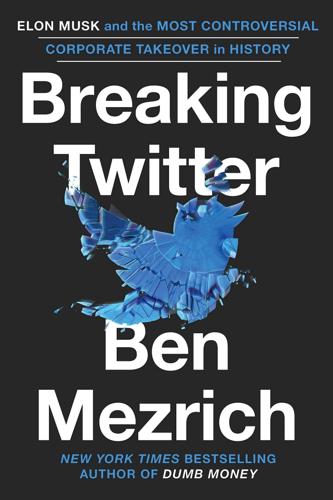
Breaking Twitter: Elon Musk and the Most Controversial Corporate Takeover in History
by
Ben Mezrich
Published 6 Nov 2023
Which meant, mathematically, that the odds that you were living in the one base reality, and not one of the near-infinite, indistinguishable simulations, tended toward zero. Further, even if a simulation were built around a specific base character, each simulation contained a near-infinite number of “non-player characters” (NPC). So not only were the odds that you were, at this very moment, living in a simulation; the odds were also that you weren’t even a self-functioning character. You were, in all mathematical likelihood, an NPC. Elon did not believe that he himself was an NPC, but in numerous interviews, tweets, and comments, he had made it clear that he was captivated by the beauty and logic of the simulation worldview.
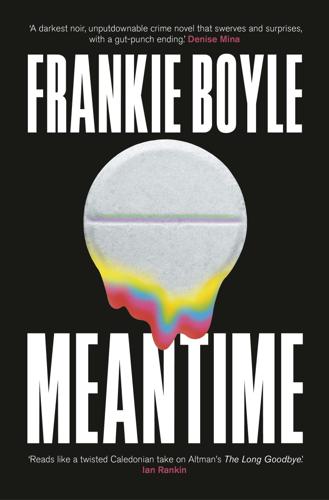
Meantime: The Brilliant 'Unputdownable Crime Novel' From Frankie Boyle
by
Frankie Boyle
Published 20 Jul 2022
I wrote this down half-heartedly. ‘Look, Malcolm, I’m going to need to look through Marina’s room.’ ‘What for? The police have taken most of her stuff away, man.’ ‘I just need to do it, okay?’ He stared straight ahead, nodding along to the faint sound of music from upstairs like some glitched non-player character in a video game, which I took to be a kind of okay. I’d always wondered what it would take to clean Marina’s room. Malcolm said it took a six-man team working two days. I opened the drawer of her bedside cabinet and stared at its empty bottom. Why had the police taken everything? How could her murder have possibly involved all her clothes?
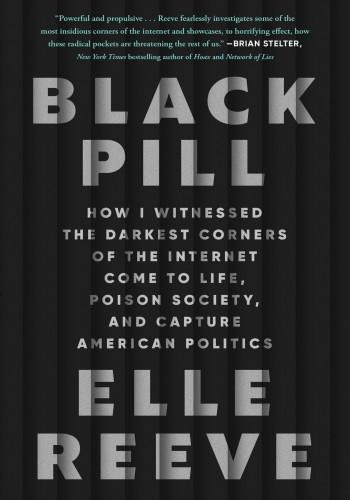
Black Pill: How I Witnessed the Darkest Corners of the Internet Come to Life, Poison Society, and Capture American Politics
by
Elle Reeve
Published 9 Jul 2024
The white power movement had imagined a nation teeming with wholesome white people who would naturally be on their side if they could just be reached with the right message. Spencer was tired of it. He described those middle Americans with a video game term that had become slang for people with no interiority: non-player characters, or NPCs. “These are the most boring, meaningless NPCs of all time, who will be steamrolled by people with higher levels of will and imagination.” He and Regnery felt contempt for the conservative establishment. Spencer said, “We were just like, Fuck you all…. You like the Iraq invasion, but you are attacking Bill Regnery because he’s racist?
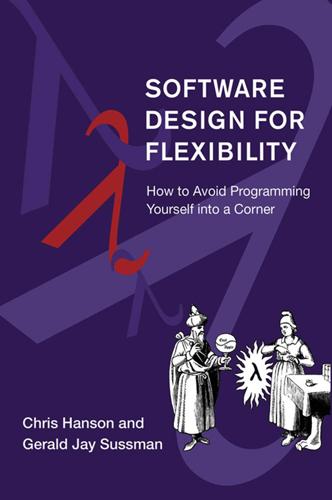
Software Design for Flexibility
by
Chris Hanson
and
Gerald Sussman
Published 17 Feb 2021
So when such a thing is instantiated, it must make a table for all of its properties, including those inherited from more inclusive sets. The rules for implementing the behavior of operators such as move must be able to find appropriate handlers for manipulating the properties in each case. The game Our game is played on a rough topological map of MIT. There are various autonomous agents (non-player characters), such as students and officials. The registrar, for example, is a troll. There are movable and immovable things, and movable things can be taken by an autonomous agent or the player's avatar. Although this game has little detail, it can be expanded to be very interesting. We create a session with an avatar named gjs who appears in a random place.
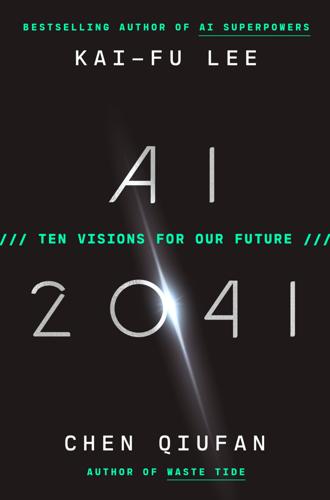
AI 2041: Ten Visions for Our Future
by
Kai-Fu Lee
and
Qiufan Chen
Published 13 Sep 2021
It’s always relied on human creativity and emotion, but now they’ve handed even that over to AI.” “I always thought that was the future.” “You don’t even play games. You don’t understand!” “I don’t understand?” His father’s huge body leaned back, and he laughed heartily, rattling his ergonomic chair. “When I was a kid playing Grand Theft Auto, I wondered why the non-player characters had to be so dumb. In the Halo sequels, the aliens were at least able to coordinate a decent attack. But these were still light-years from the unscripted, procedural NPCs dominating today’s games.” Golden Sparrow’s eyes grew wide. He hadn’t ever seen this side of his father. “Call of Duty, League of Legends, Breath of the Wild, Pokémon Go…When I played these, I always thought, why can’t the game adjust in real time according to my reaction speed, habits, and preferences?
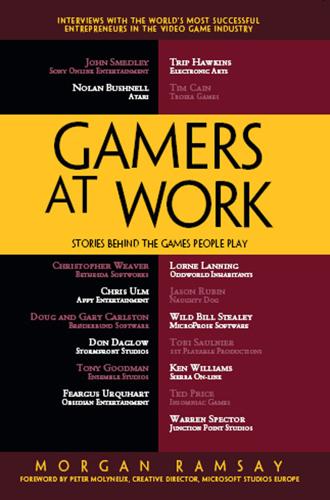
Gamers at Work: Stories Behind the Games People Play
by
Morgan Ramsay
and
Peter Molyneux
Published 28 Jul 2011
But despite the doe-eyed look, he was still a cocky little bastard. At least until the sequel. Ramsay: How did Spyro change for the sequel? Price: We introduced new abilities for Spyro, including power-ups and the abilities to hover after a glide, swim underwater, and climb ladders. We also introduced new non-player characters, new enemies, and a new boss, Ripto. The story was a continuation of the first game's story, though a year had passed in Spyro's universe, and the worlds which players got to visit were entirely new. The reasons for the changes were simply that we felt the need to create a sequel that offered more than the original.
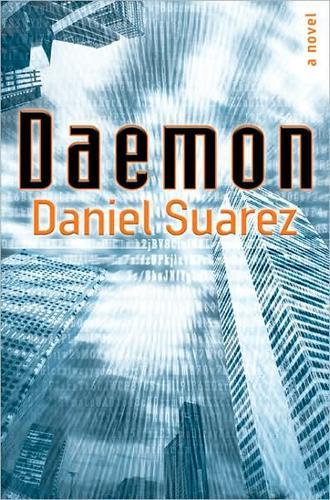
Daemon
by
Daniel Suarez
Published 1 Dec 2006
A voice in the darkness: “Can we continue, please?” Philips nodded. The screen suddenly came to life. Animated 3-D people moved through the scene. It was eerie how realistically the people moved—although only half of them had glowing names floating over their heads. “The characters moving around without names are NPCs, non-player characters—they are computer controlled. Only human players have names.” The perspective of the screen changed. It was a first-person view from Philips’s character as she moved through the crowd. “We conducted this session from our offices in Crypto. The game permits players with VOIP capability to speak directly to nearby players over a voice channel.
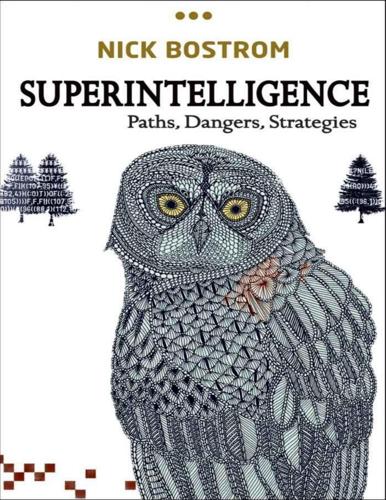
Superintelligence: Paths, Dangers, Strategies
by
Nick Bostrom
Published 3 Jun 2014
Consider, for example, the happy abandon with which contemporary programmers create reinforcement-learning agents and subject them to aversive stimuli. Countless such agents are created daily, not only in computer science laboratories but in many applications, including some computer games containing sophisticated non-player characters. Presumably, these agents are still too primitive to have any moral status. But how confident can we really be that this is so? More importantly, how confident can we be that we will know to stop in time, before our programs become capable of experiencing morally relevant suffering? (We will return in Chapter 14 to some of the broader strategic questions that arise when we compare the desirability of emulation and artificial intelligence paths.)
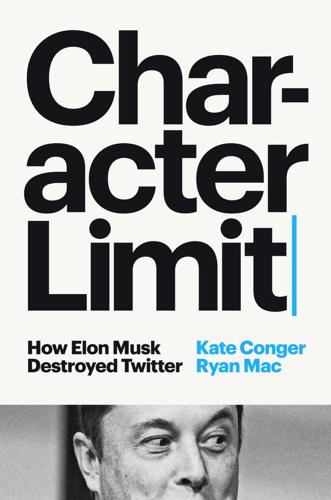
Character Limit: How Elon Musk Destroyed Twitter
by
Kate Conger
and
Ryan Mac
Published 17 Sep 2024
The criticism stung Musk, who began to see the full-throated support of Ukraine as an orthodox position held by some of the “woke” liberal elements that he had grown to hate. Ten days after his post about Ukraine holding strong, he had developed a new opinion and shared two memes to underscore his reversal. One featured a photo of a cartoon drawing of a non-player character, or NPC, a derogatory term for people who are incapable of forming their own independent thoughts. “I support the current thing,” read the text on the image, with the cartoon framed by LGBTQ symbols as it held a Ukraine flag. Another meme, taken from the Netflix show Narcos, showed a man staring off into the distance.
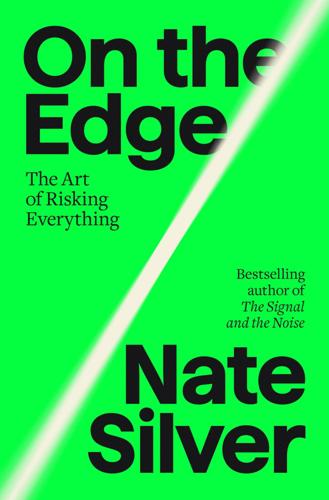
On the Edge: The Art of Risking Everything
by
Nate Silver
Published 12 Aug 2024
NOT INVESTMENT ADVICE: Investment advice. A Riverian trope for a legalistic disclaimer that means the opposite of what it says. The phrase was frequently employed by Sam Bankman-Fried in all caps before offering analysis that in fact provided actionable intelligence to investors. NPC: See: non-player character. Nuts (poker): A hand that is so strong that it will essentially never lose. Modifiers may clarify whether this refers to the very best hand or merely one of the best; for instance, stone-cold nuts refers to the exact best hand, like 8♣6♣ (the best available straight flush) on a board of 5♣7♣A♦4♣A♥.
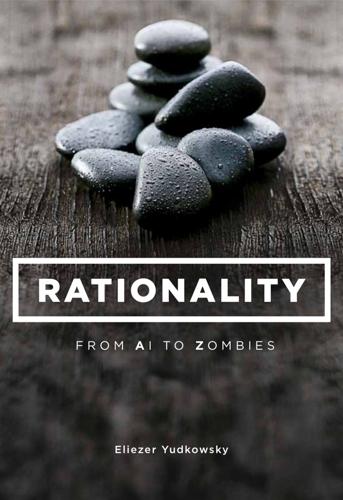
Rationality: From AI to Zombies
by
Eliezer Yudkowsky
Published 11 Mar 2015
Maybe you could take, as a corpus, one thousand human amateurs trying to discuss consciousness; feed them into a non-conscious but sophisticated AI, better than today’s models but not self-modifying; and get back discourse about “consciousness” that sounded as sensible as most humans, which is to say, not very. But this speech about “consciousness” would not be spontaneous. It would not be produced within the AI. It would be a recorded imitation of someone else talking. That is just a holodeck, with a central AI writing the speech of the non-player characters. This is not what the Zombie World is about. By supposition, the Zombie World is atom-by-atom identical to our own, except that the inhabitants lack consciousness. Furthermore, the atoms in the Zombie World move under the same laws of physics as in our own world. If there are “bridging laws” that govern which configurations of atoms evoke consciousness, those bridging laws are absent.